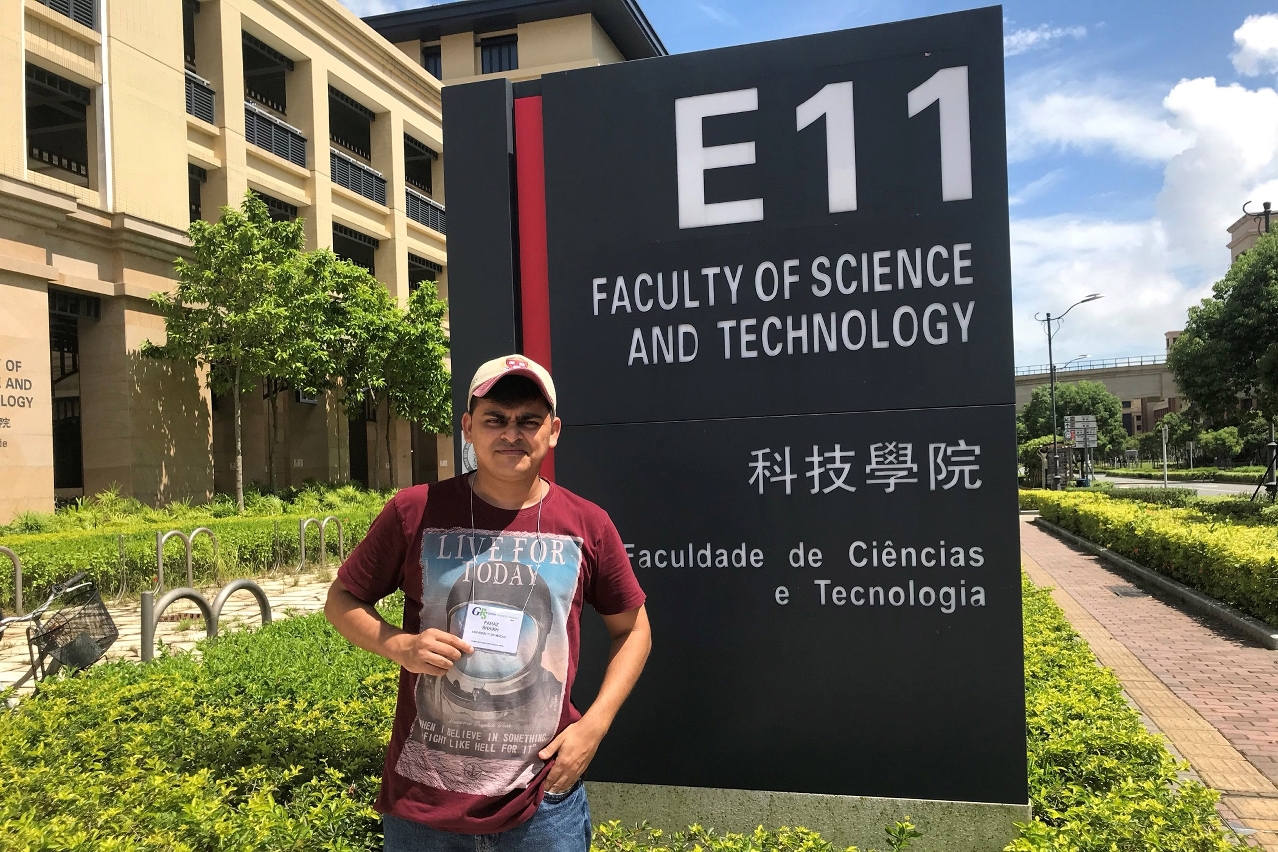 Two Ebola virus drug candidates discovered by UM student Shaikh have been validated by the University of Oxford.
Two Ebola virus drug candidates discovered by UM student Shaikh have been validated by the University of Oxford.
Faraz Mohammadali Shaikh, a PhD student from the Faculty of Science and Technology (FST), University of Macau (UM), recently discovered two Ebola virus drug candidates. The groundbreaking discovery has been validated by collaborators from the University of Oxford through biological experiments, attracting international attention. Shaikh was awarded the Carl Storm International Diversity Fellowship, which sponsored him to attend the 2019 Computer-Aided Drug Design Gordon Research Seminar (GRS) and the 2019 Computer-Aided Drug Design Gordon Research Conference (GRC) in the United States to present his findings, in order to help the medical industry develop more anti-Ebola drugs.
The research study was conducted by Shaikh under the guidance of Assistant Professor Shirley Siu Weng In from the FST. Using hierarchical molecular docking techniques, Faraz computationally screened a traditional Chinese medicine-derived library of nearly 2.5 million compounds against the Ebola glycoprotein, from which he identified eight candidates with potential inhibitory effects on Ebola infectious activities. Biological experiments were carried out later by collaborators from the University of Oxford, and eventually, two compounds were validated to show strong activity against viral entry. The groundbreaking discovery has been published in the Journal of Medicinal Chemistry.
Those invited to speak at the GRS were students and post-doctoral scholars from world-renowned universities, including the University of Oxford, the University of Cambridge, Boston University, Hamburg University, and other universities in the United States. The speaker list was made based on the impact of the individuals’ research. Shaikh was the only PhD student from an Asian university to speak at the seminar.
At the other event, the GRC, Shaikh presented a poster on his recent work on LigTMap - a novel computational workflow designed to rapidly identify protein targets upon which a small molecule could induce effects. The efficient prediction is based on multi-stage molecular fingerprint filtering, the in-house developed swarm-optimised docking technique, and artificial intelligence technology. The conference attracted leading scientists in the field from around the world. Participants had in-depth discussions on recent advances at the intersection of big data, small molecules, and macromolecular protein structures, with an emphasis on novel computational methods and their real-world applications.


